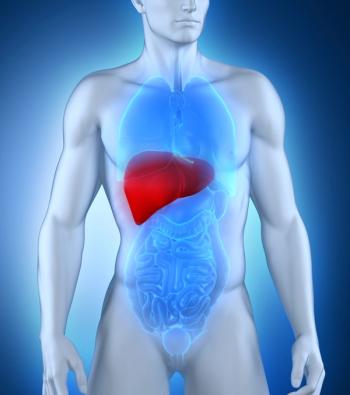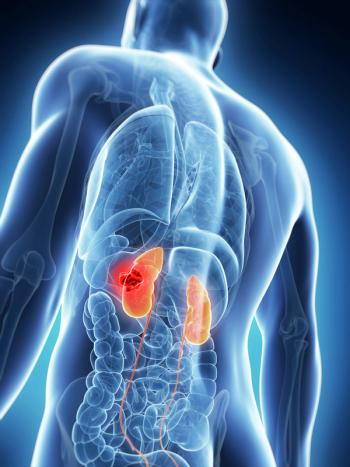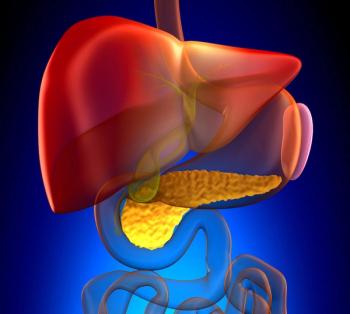
The EMA’s CHMP has adopted a positive opinion for mirdametinib in patients with inoperable plexiform neurofibromas of neurofibromatosis type 1.

Your AI-Trained Oncology Knowledge Connection!


The EMA’s CHMP has adopted a positive opinion for mirdametinib in patients with inoperable plexiform neurofibromas of neurofibromatosis type 1.

The positive CHMP opinion is based on results from the phase 1b/2 FELIX trial evaluating obe-cel in relapsed/refractory B-cell ALL.

Tafasitamab is the first CD19 antibody approved in China for the treatment of patients with relapsed or refractory diffuse large B-cell lymphoma.

Findings from the CheckMate 77T study support the approval of this nivolumab-based regimen in the European Union.

Data from the DREAMM-7 and DREAMM-8 trials support the approval of belantamab mafodotin for patients with relapsed/refractory multiple myeloma in Japan.

Support for the decision follows a positive opinion from the Committee for Medicinal Products for Human Use based on the phase 3 ECHO trial results.

The EU approval was based on results from the phase 1/2 LINKER-MM1 trial assessing the efficacy of linvoseltamab in relapsed/refractory multiple myeloma.

Results from the phase 3 HD21 trial showed that brentuximab vedotin plus chemotherapy was superior to alternative treatments in Hodgkin lymphoma.
![“These results and the lack of systemic toxicity observed with [TTFields] provide patients with a promising new treatment option,” according to Joachim Aerts, MD, an investigator of the phase 3 LUNAR trial (NCT02973789).](https://cdn.sanity.io/images/0vv8moc6/cancernetwork/7d7dfad7849391f4be3ebd2cf39c24f5369cfcd1-1200x1176.jpg?w=350&fit=crop&auto=format)
Data from the phase 3 LUNAR trial support the Conformité Européenne Mark for tumor treating fields in metastatic non–small cell lung cancer.

Results from the DREAMM-7 and DREAMM-8 trials support the approval of belantamab mafodotin with chemotherapy in relapsed/refractory multiple myeloma.

Data from the phase 3 CEPHEUS trial support the European Commission’s approval of the daratumumab-based regimen.

Results from the phase 3 DESTINY-Breast06 trial demonstrated that trastuzumab deruxtecan (T-DXd) monotherapy improved progression-free survival over chemotherapy in patients with breast cancer.

Data from the phase 3 CheckMate 77T trial support the CHMP’s opinion on approving the perioperative nivolumab regimen for those with resectable NSCLC.

Data from the phase 3 CheckMate-67T trial support the CHMP’s recommendation for approving subcutaneous nivolumab across various solid tumor indications.

Tislelizumab plus chemotherapy demonstrated superior OS, PFS, ORR, and DOR results compared with placebo plus chemotherapy in first-line ES-SCLC.

Results from the phase 3 ECHO trial showed PFS and OS improvements with acalabrutinib in the first-line treatment of MCL compared with standard of care.

Tisotumab vedotin elicited a median OS of 11.5 months vs 9.5 months with chemotherapy in advanced cervical cancer in the phase 3 innovaTV 301 trial.

The CheckMate 9DW trial found that nivolumab and ipilimumab elicited a median OS of 23.7 months compared with 20.6 months from lenvatinib or sorafenib.

Daratumumab would become the sole anti-CD38 agent available for all newly diagnosed multiple myeloma types if approved.

Data from the DESTINY-Breast06 trial support the positive opinion on trastuzumab deruxtecan as a treatment in HER2-low or HER2-ultralow breast cancer.

Pirtobrutinib demonstrated PFS benefit compared with standard of care in patients with relapsed or refractory CLL in the BRUIN CLL-321 trial.

Data from the phase 3 STARGLO study support the CHMP’s recommendation for approving glofitamab plus gemcitabine/oxaliplatin in relapsed/refractory DLBCL.

Despite prior relapses, 200 mg of linvoseltamab elicited complete responses or better in 49.6% of patients with relapsed/refractory multiple myeloma.

Isatuximab plus bortezomib, lenalidomide, and dexamethasone demonstrated enhanced MRD-negativity rates and a PFS benefit in patients with newly diagnosed multiple myeloma.

LITESPARK-004 and LITESPARK-005 trial results support the approval of belzutifan in patients with associated localized or advanced clear cell RCC.

Support for the recommendation is based on phase 3 ADRIATIC trial results showing a 27% reduction in the risk of death with durvalumab vs placebo.

Findings from the CheckMate 9DW trial support the CHMP’s recommendation for approving nivolumab/ipilimumab for those with unresectable HCC.

The TRANSCEND FL trial showed that liso-cel elicited an ORR of 97.1% and a complete response rate of 94.2% in patients with follicular lymphoma.

Patients who received the isatuximab combination in the IMROZ trial experienced prolonged MRD-negativity, which correlated with improved PFS.

Dostarlimab/chemotherapy elicited a 31% decrease in the risk of death compared with placebo/chemotherapy in locally advanced/recurrent endometrial cancer.